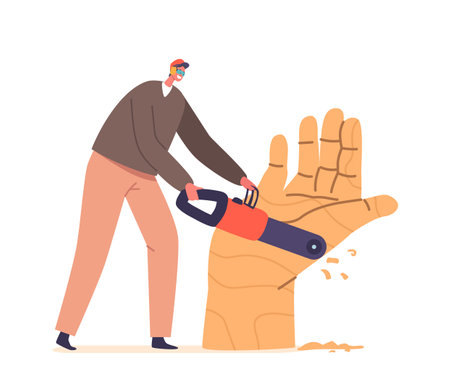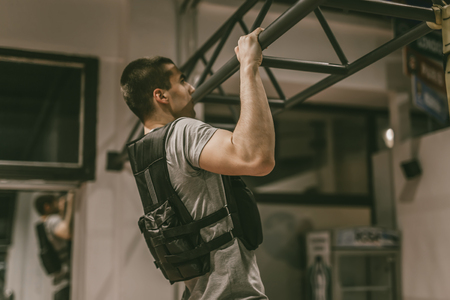Understanding Major Shoulder Injuries
The shoulder is a remarkably complex joint, playing a pivotal role in daily life and physical activity. In the UK, major shoulder injuries are not only common among athletes but also frequently impact individuals in manual professions and office-based roles. Some of the most prevalent serious shoulder injuries include rotator cuff tears, dislocations, frozen shoulder (adhesive capsulitis), and fractures of the clavicle or humerus. Each of these conditions can have significant consequences for both work and leisure activities.
Rotator cuff tears often occur due to repetitive overhead movements—common in sports like cricket, rugby, and tennis, as well as trades such as construction or plumbing. Dislocations are seen both on the rugby pitch and after falls at home or work. Frozen shoulder, meanwhile, is more insidious and can develop gradually, often affecting those in middle age and beyond. Fractures usually result from direct trauma or accidents—a risk present across many walks of life in the UK.
The implications of these injuries go beyond pain; they can severely restrict range of motion, reduce strength, and hinder the ability to perform everyday tasks—from lifting a kettle to carrying shopping bags or driving. For workers, especially those whose jobs involve manual handling or repeated arm use, this can mean long periods away from their duties or even a need to reconsider their professional roles altogether. Likewise, sporting enthusiasts may face lengthy rehabilitation before returning to training or competition.
Understanding the nature of these injuries—and their potential impact on your independence and livelihood—is the first step towards planning an effective return to both work and sport. In the following sections, we’ll look at rehabilitation strategies tailored to the UK’s healthcare system and explore practical advice for navigating your recovery journey.
2. The Recovery Process in the NHS Framework
In the UK, recovering from a significant shoulder injury is often a structured journey, primarily guided by the NHS framework. This process ensures that patients receive systematic and equitable care throughout their rehabilitation, whether their goal is to return to work, sport, or simply regain daily function. Below is an outline of the typical stages you may encounter:
Initial Assessment and Referral
The recovery journey usually begins with a visit to your GP or Accident & Emergency following the injury. Depending on severity, you may be referred for imaging (such as X-rays or MRI) and then directed to an orthopaedic specialist. If surgery is required, this will be arranged within the local NHS Trust’s capacity. For non-surgical cases, early intervention through physiotherapy is often recommended.
Physiotherapy Pathway
Physiotherapy forms the backbone of most shoulder injury rehabilitation plans in the UK. Once referred by your GP or consultant, you’ll be assigned to a physiotherapist who will assess your condition and design a personalised programme. Treatment typically progresses through several phases:
| Stage | Typical Focus | Duration (approx.) |
|---|---|---|
| Acute Phase | Pain management, reducing inflammation, gentle mobility exercises | 1-3 weeks |
| Sub-Acute Phase | Restoring range of motion, introducing light strengthening | 3-8 weeks |
| Rehabilitation Phase | Functional exercises, progressive resistance training | 2-6 months |
| Return to Activity/Sport | Sport-specific drills, advanced strength and proprioception work | 6+ months (varies) |
Occupational Health Support
If your job involves physical tasks or repetitive movements, occupational health teams within the NHS or your employer’s support service can play a vital role. They assess your readiness to return to work, recommend adjustments (such as phased returns or modified duties), and liaise with your physiotherapist to ensure workplace safety.
The Role of Multidisciplinary Teams
A key strength of the NHS approach is its multidisciplinary nature: GPs, consultants, physios, occupational therapists and sometimes psychologists work together to support both physical and mental wellbeing throughout recovery. This collaborative ethos helps ensure that returning to work or sport after a major shoulder injury isn’t just about healing tissue—it’s about restoring confidence and capability in all aspects of life.

3. Returning to Work: Practical Considerations
Reintegrating into the workplace after a major shoulder injury can be both daunting and rewarding. It is essential to approach this process with careful planning, open communication, and an awareness of your rights and responsibilities under UK workplace regulations. A gradual return to work is often advised, tailored to your specific role and recovery status.
Typical Return-to-Work Plans
Most return-to-work plans begin with a phased approach, allowing you to build up hours and responsibilities over time. For example, you might start with part-time duties or reduced workloads, progressing as your confidence and physical abilities improve. Regular reviews with your line manager or occupational health advisor are key to ensuring the plan remains appropriate and flexible.
Reasonable Adjustments in the Workplace
Under UK law, employers have a duty to make reasonable adjustments for employees returning after injury. This may involve modifying your workstation, providing specialised equipment (such as ergonomic chairs or voice recognition software), or temporarily reallocating certain tasks. If your job involves manual handling, employers should ensure tasks are within your current physical capabilities, possibly reassigning heavier duties until you are fully recovered.
Insights from Health & Safety Executive (HSE) Recommendations
The HSE advises clear risk assessments prior to resuming work activities that could strain the recovering shoulder. Employers should consult occupational health professionals and consider temporary modifications such as lighter duties or extra breaks. Open dialogue between you, your healthcare team, and your employer is encouraged to monitor progress and prevent setbacks. Remember, returning too soon or pushing beyond limits can prolong recovery or risk reinjury; patience and honesty about your capabilities will serve you well in the long run.
4. Getting Back to Sport: Community and Club Involvement
Returning to sport after a major shoulder injury can feel daunting, but in the UK, local clubs and community groups play a vital role in supporting individuals during this transition. Whether your passion lies in football, cricket, rugby, netball, or even bowls, grassroots organisations are often welcoming and equipped with resources to ease your return. Here are some key considerations and support mechanisms available as you navigate this stage:
Community-Based Support Systems
British sporting culture values inclusivity and camaraderie at all levels. Local clubs usually have welfare officers or designated volunteers who can assist with phased reintroduction to training and matches. Most offer non-contact or low-intensity sessions specifically designed for those recovering from injury. It is worth informing your club’s coaching staff about your rehabilitation status so they can tailor drills and expectations accordingly.
Common Support Available at UK Clubs
| Support Type | Description | Typical Provider |
|---|---|---|
| Modified Training Sessions | Low-impact drills and technique-based sessions to build confidence post-injury | Club Coaches/Physios |
| Mental Health Resources | Peer support groups or links to local mental health charities like Mind | Welfare Officers/Volunteers |
| Return-to-Play Protocols | Stepwise progression plans based on current best practices (e.g., phased contact) | Coaching Teams/Medical Partners |
| Social Events & Community Days | Opportunities for gradual reintegration through non-competitive participation | Club Committees/Members |
Grassroots Participation: Building Confidence Again
The ethos of British grassroots sport revolves around enjoyment, development, and belonging. There is no rush to reach previous performance levels; instead, emphasis is placed on safe participation and incremental improvement. Many find that returning first as a supporter, referee, or club volunteer helps rebuild connection before rejoining active play.
Cultural Considerations for a Positive Return Experience
- Pace Yourself: Don’t be pressured by “back to normal” expectations—set small goals with your physio or club mentor.
- Communication Is Key: Regularly update coaches and teammates on your progress so they can provide appropriate encouragement.
- Celebrate Milestones: British clubs often mark returnees’ first games back—embrace these moments as part of your recovery journey.
- Embrace Inclusivity: All abilities are welcomed at community level; focus on fun and fitness rather than competition alone.
Your local sports community can be one of your greatest assets post-injury. By engaging with club resources and maintaining open communication, you’ll not only regain physical ability but also rediscover the social benefits that make British grassroots sport so unique.
5. Managing Psychological and Social Aspects
Coping Strategies for Emotional Wellbeing
Recovering from a major shoulder injury is not just a physical journey—it can be a significant psychological challenge as well. Many individuals experience frustration, anxiety, or low mood during their return to work and sport. It’s important to acknowledge these feelings as normal. Practising mindfulness, setting realistic goals, and celebrating small milestones can all help maintain perspective. If you find yourself struggling, don’t hesitate to reach out for professional support—NHS resources or local mental health charities such as Mind offer confidential assistance.
Community Support Resources
Connecting with others who have experienced similar injuries can provide both reassurance and practical advice. Online forums, social media groups, or local sports clubs often host supportive communities where people share recovery stories and tips. You may also benefit from NHS rehabilitation services or physiotherapy-led support groups in your area. These resources foster a sense of belonging and help combat the isolation that sometimes comes with injury recovery.
Navigating Conversations with Employers, Coaches, and Peers
Open communication plays a crucial role in easing your transition back into daily activities. When discussing your recovery with your employer, be clear about any adjustments you might need—such as phased returns, modified duties, or flexible working hours. UK employment law supports reasonable adjustments for those returning from injury, so don’t be afraid to ask. For athletes, keeping coaches informed about your limitations helps prevent re-injury and builds trust within your team. Similarly, honest conversations with friends and peers set realistic expectations and ensure you receive the encouragement you need during this time.
Building Your Support Network
Remember, navigating the psychological and social aspects of recovery is an ongoing process. By tapping into community resources, prioritising emotional wellbeing, and communicating openly with those around you, you lay the groundwork for a more confident and sustainable return to both work and sport.
6. Long-Term Prevention and Maintenance
Successfully returning to work or sport after a major shoulder injury is a significant milestone, but long-term prevention and maintenance are equally critical for ongoing joint health. Proactive care helps reduce the risk of re-injury and supports sustained participation in daily activities and athletic pursuits.
Steps for Ongoing Shoulder Care
Establishing a regular routine is essential. This should include gentle mobility exercises, as prescribed by your physiotherapist, to maintain flexibility and strength. Incorporate resistance training with appropriate progression to avoid overloading the joint. Adhering to warm-up and cool-down routines before physical activity is especially important in the unpredictable UK climate, where cold weather can increase muscle stiffness.
Injury Prevention Strategies
Awareness of body mechanics—particularly during lifting at work or repetitive movements in sport—can significantly lower the risk of further damage. Employers in the UK are encouraged to conduct workplace assessments and provide manual handling training; don’t hesitate to request these through your HR department if they’re not already offered. For athletes, clubs often partner with local physiotherapists or sports injury clinics who can offer tailored prevention advice.
Maintaining Joint Health
Pay attention to early warning signs such as persistent pain, weakness, or loss of range of motion. Access NHS resources like physiotherapy services or consult your GP if symptoms arise. Many communities have access to support groups such as Arthritis Action UK or Versus Arthritis, which provide information on self-management and maintaining an active lifestyle post-injury.
UK-Based Resources and Support Networks
The NHS website (www.nhs.uk) offers comprehensive guidance on shoulder health, rehabilitation exercises, and when to seek medical help. For those seeking peer support, organisations like the Chartered Society of Physiotherapy (CSP) provide directories to find accredited professionals locally. Additionally, online forums such as HealthUnlocked host active UK-based communities where you can exchange experiences and advice about recovery journeys.
Ultimately, committing to long-term prevention strategies—supported by reliable UK resources—will help you protect your shoulder investment, ensuring that you stay active at work and in sport for years to come.

